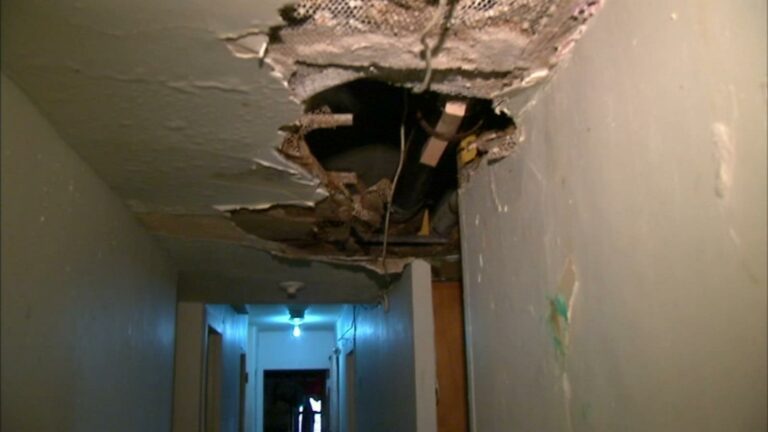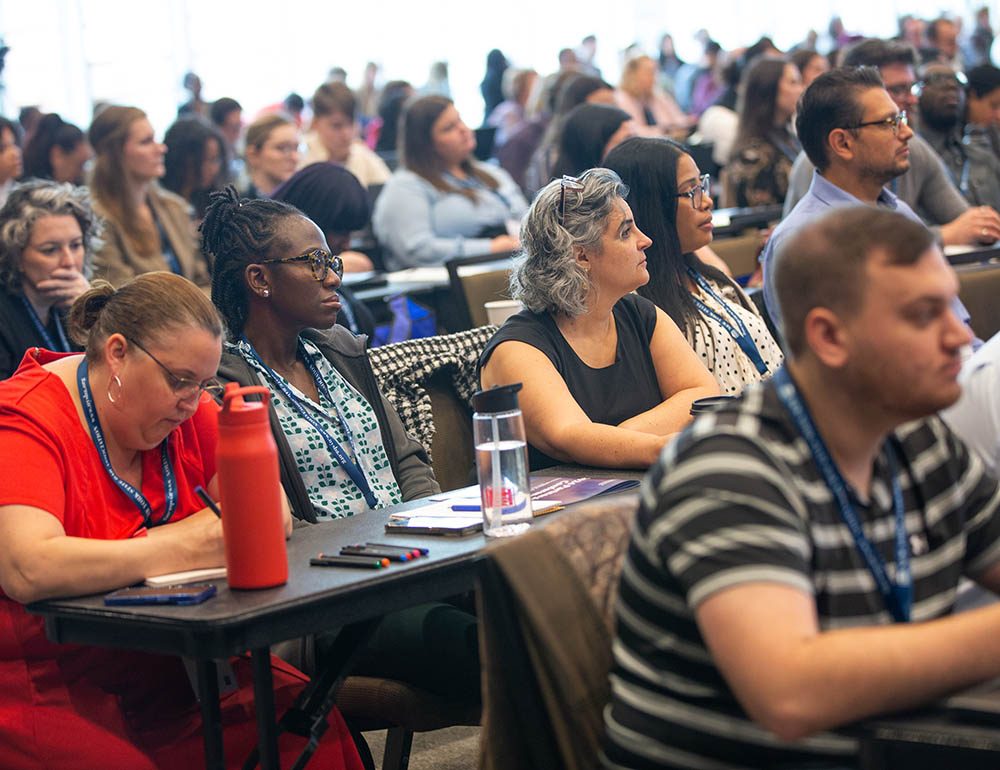Public Housing Tenants Face Legal Obstacle Course To Get Repairs
9.27.2024

Public housing tenants in New York State often find it difficult to get needed repairs and maintenance. A New York State Bar Association Continuing Legal Education course discussed how lawyers can be part of the solution, and the steps needed to empower tenants in tackling these issues.
Anna Luft, public housing justice project director at New York Legal Assistance Group, and Marcie Kobak, litigation director at Legal Services of the Hudson Valley, were the speakers. The session was part of the New York State Bar Association’s Partnership Conference, in which hundreds of lawyers gathered in Albany to discuss legal issues affecting vulnerable New Yorkers.
Luft explained that many public housing complexes are built near places with heavy pollution, including highways, industrial areas, and Superfund sites. “These decisions have a real impact on residents’ health,” said Luft. “Segregated public housing for black people was built in less desirable areas. The result is that 70% of Superfund sites are near public housing across the country. And residents continue to feel those effects today.”
Many Problems in New York City Public Housing
Luft shared images of water damage, mold, and disrepair in New York City public housing. She explained that due a to a culture of mismanagement, repairs are often left piecemeal or incomplete, which causes more problems.
Furthermore, the New York City Housing Authority is exempt from certain laws. “Our lead poisoning and prevention regulations in New York City and New York state don’t govern NYCHA,” said Luft. “Boiler inspections don’t govern NYCHA. Certifications for mold removal, that private tenants are entitled to, don’t govern NYCHA.”
Luft said that while legal remedies are possible, it is problematic that tenants often have to resort to lawyers to get necessary repairs on their homes. “NYCHA Healthy Homes will facilitate repairs for issues related to mold, moisture, asbestos and lead,” she said. “They’re also very helpful. I think the irony there is that tenants can’t contact NYCHA Healthy Homes directly. You have to be a lawyer to contact them.”
The New York City Housing Authority has been under a federal monitorship since 2019 in an effort to improve conditions and increase transparency.
Issues in Public Housing Outside of New York City
Kobak said that outside of New York City, public housing tenants face similar challenges, but the laws and regulations are less strict. “We do have the same kind of problem on the surface, which is tenants are living in substandard housing with negative health impacts,” she said. “Underneath that, we have different government structures… so there are differences in the legality of where that public housing space operates.”
For some areas, towns and village courts, in which justices can be non-lawyers, also serve as housing court. “When tenants get sued by a Public Housing Authority for eviction – and you have layers of federal, statutory law and regulation, and federal case law which applies to their tenancy – that can be decided by a lay judge,” said Kobak.
Out of 21 public housing authorities in the Legal Services of the Hudson Valley’s coverage area, 12 have websites with a specific phone number or website portal for requesting maintenance or repairs. “If that website portal is the only way to take work orders, that is a huge problem because that leaves out people across the digital divide,” said Kobak.
Five of the public housing authorities have no websites at all, and one has information on how to submit neighbor complaints but no information about maintenance requests.
Overall, the speakers concluded that public housing tenants need to be able to access resources and advocate for themselves without needing legal representation. “What we really need are more resources for tenants,” said Luft. “Because there’s never going to be enough of us [lawyers] to handle all of these issues.”
The New York State Bar Association will be posting recordings from the partnership conference soon. Here are some of the topics that were covered:
Mortgage Foreclosure: Navigating Settlement Conferences
New Medicaid Dental Coverage Rules
Expanding Special Education to Age 22: Where Are We Now?
Building Good Working Relationships with Clients Who Have Mental Health Concerns
Advocacy for Immigrant and Refugee Communities
Racial Disparities in Low Level Traffic Stops – New Approaches to an Old Problem
Equitable Justice in Landlord Tenant Proceedings
Discharging Student Loan Debt in Bankruptcy
Family and Medical Leave Benefits for Workers
Current Legal Issues in Accessing Medicaid Long Term Supports and Services
How to Chart a Repair Path: Article 7-C v. Article 7-D of the RPAPL | Warranty of Habitability
Disparities in Education: Discipline and Discrimination and Disrupting the School to Prison Pipeline with Holistic Representation
Public Benefits Training for Housing Attorneys
Culturally Competent Lawyering for LGBTQ Clients
Access to Justice for Gender-Based Violence Survivors with Developmental Disabilities
Expansion of Cash Assistance and Medicaid Eligibility for Non-Citizens
Building Partnerships to Improve Safety Outcomes for Victims of Technology Abuse




